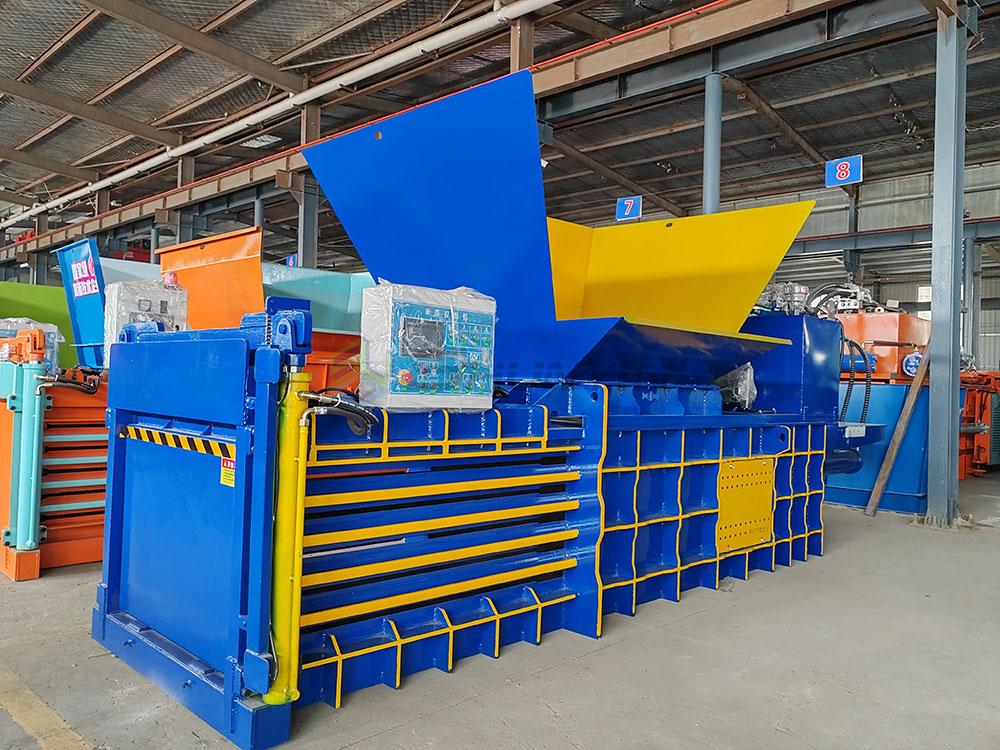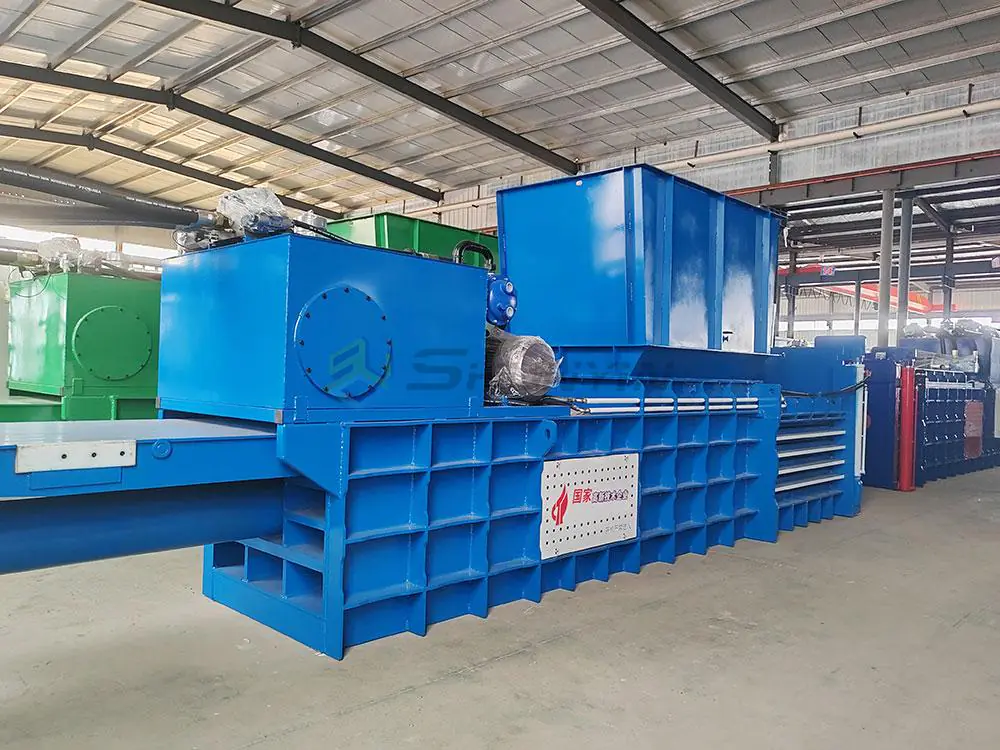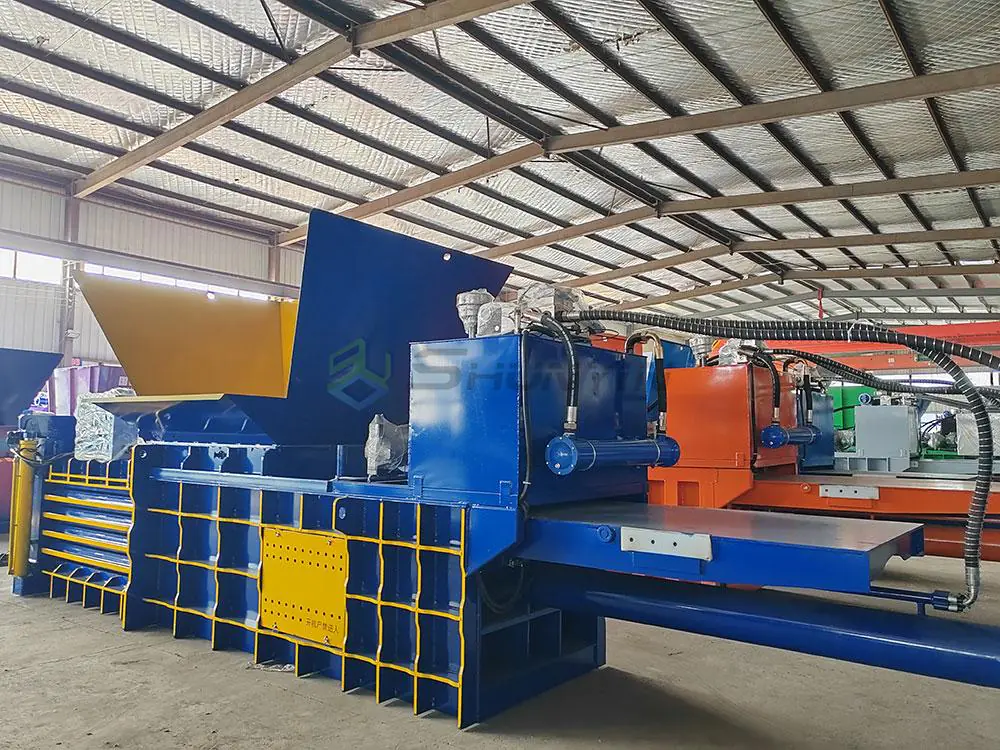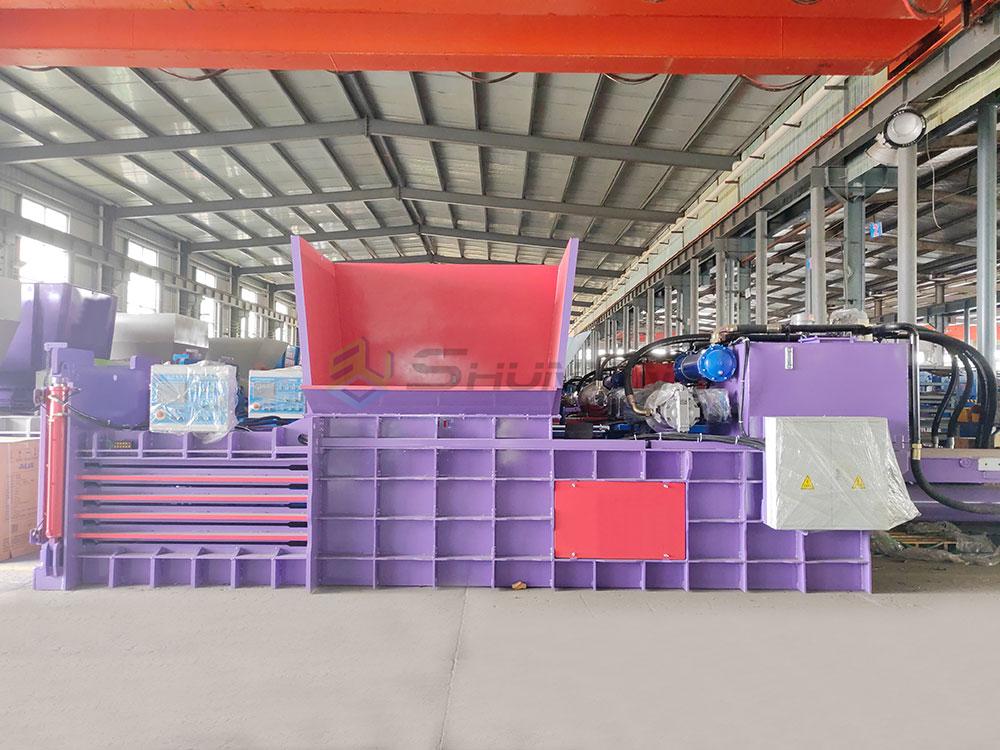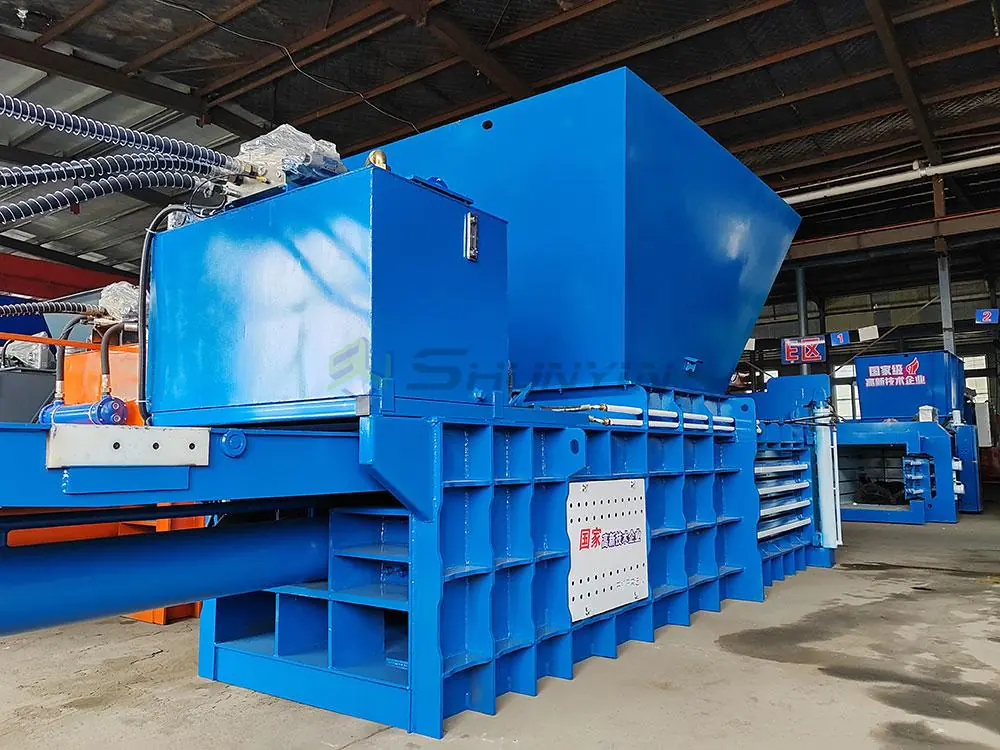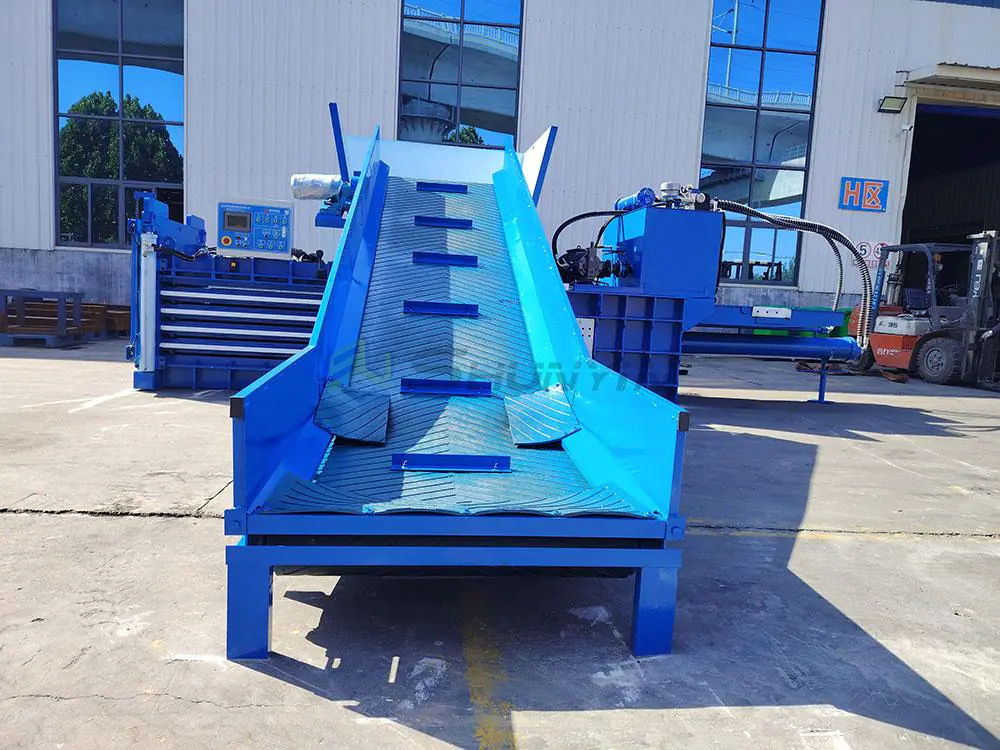Discovering PET bottle baler machine prices feels frustrating. Unclear quotes make budgeting chaotic.
PET bottle baler prices vary from $7,000 to $25,000, influenced by compression force, chamber size, automation level, and customization. At ShunYin Machinery, we provide transparent pricing starting at $7,580 with hydraulic power of 80 tons and ISO certification included.
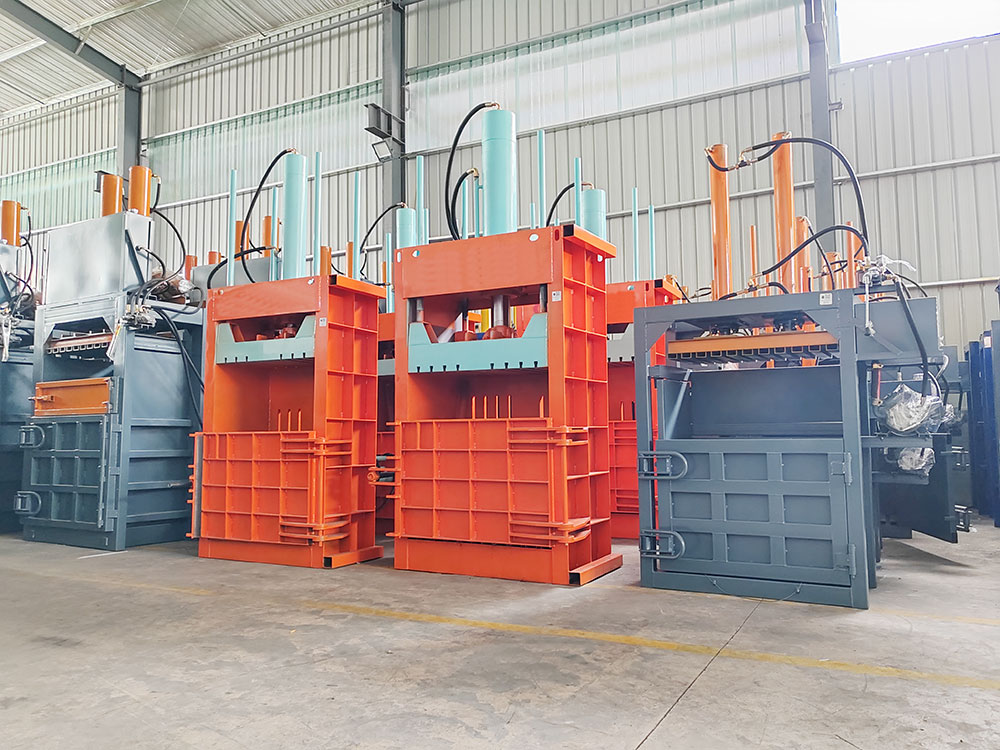
For Canadian buyers like Lucs, precise quotes prevent wasted negotiations. I’ve seen buyers lose weeks with incomplete proposals. Many suppliers hide fees until final invoices. Always demand breakdowns upfront. Our factory shares EXW/FOB pricing within 24 hours including: hydraulic power specs, electric consumption rates, and custom modification costs.
What is the Price of PET Bottle Press Machine in India?
Indian recyclers battle confusing machinery quotes daily. Hidden costs crush profit margins.
PET bottle press machines cost ₹650,000-₹2,100,000 in India, depending on tonnage (20-100 tons), automation features, steel grade quality, and local taxes. ShunYin Machinery exports India-bound balers at ₹750,000 EXW Shenzhen.

Key Pricing Variables in India
| Factor | Low Impact | High Impact | Why It Matters |
|---|---|---|---|
| Hydraulic Tonnage | 20-ton models | 100-ton models | Higher tonnage handles denser bales, reducing transport costs by 40% |
| Custom Duty | 10% basic duty | 28% + CESS | We assist with IGST refund documentation |
| Motor Power | 7.5kW standard | 15-20kW upgraded | High-power motors cut compression cycles by 55% |
| After-Sales | Basic manuals | Onsite training | Our Mumbai team provides installation videos in Hindi |
India’s complex import taxes demand careful planning. I recently helped a Delhi buyer avoid ₹300,000 overpayments by pre-calculating customs. Consider AC vs DC motors – the extra ₹120,000 investment cuts energy bills 35%. Local warehouse support? Confirm parts availability. Email our India team GST/Duty questions anytime: [email protected]
What is a Hydraulic Baling Machine?
Recyclers struggle with loose materials causing storage nightmares daily.
Hydraulic baling machines compress waste into compact blocks using pressurized fluid cylinder systems, achieving force from 20 to 200 tons for uniform bale density. Suitable for paper, textiles and PET. See our vertical vs horizontal comparison below.

Operational Principles Simplified
- Material Loading
Waste manually fed through safety gates - Compression Cycle
Hydraulic pump (5-20kW) activates main cylinder - Bale Ejection
Finished bales auto-tied for transport
Our clients in Singapore run 1000kg/hour PET compression cycles. One saved ₤500/month on container shipments. Horizontal models like ShunYin HBB-120 occupy 25% less floor space. Consider cycle timers when calculating ROI. Need hourly output projections? WhatsApp real-case data: 0086 13505379893.
What is a Plastic Baling Machine?
Warehouses buried under PET piles need specialized compacting solutions.
Plastic baling machines are hydraulic systems engineered specifically for polymer compression, with heated plates for material binding and corrosion-resistant alloys for acidic PET residues. Achieves 8:1 volume reduction.

Plastic-Specific Design Features
- Corrosion Protection
316 stainless steel chamber walls prevent acidic degradation - Thermal Options
Optional 120°C heating modules for binding PET flakes - Anti-Clogging Tech
Auger feeders prevent jams with irregular shapes
North American buyers like Lucs prioritize moisture resistance. I recall a shipment to Toronto where hardened chrome rods outperformed carbon steel. Always check pressure consistency across chamber surfaces. Uneven compression wastes material. We design all balers with dual-pressure gauges. Visit https://syplastech.com for PET bale density standards.
What Are the Disadvantages of Baling?
Operators sometimes blame machines for their packing frustrations.
Baling requires dedicated space and operator training, with initial costs impacting cash flow. Minimal maintenance includes hydraulic fluid changes and weekly bolt inspections. We provide solutions through automated options.

Mitigating Common Concerns
#1 Floor Space Allocation
Vertical balers need 5x7m areas. Our compact horizontal models fit tighter spaces.
#2 Training Investment
New operators average 1.5 hours training. Our video libraries cut this to 20 minutes.
#3 Maintenance Costs
Basic hydraulic service averages $180/month. Include these in negotiations:
- Annual cylinder resealing kits
- Pump filter replacements (monthly)
One Canadian client avoided downtime by storing spare O-rings locally. We include 72 emergency parts with every baler. Still hesitant? Request a trial cost-benefit analysis: [email protected].
How Does a Plastic Baler Work?
Uncompressed PET bottles create logistics chaos through wasted container space.
Plastic balers compress materials via hydraulic pressure. Operators load bottles into the chamber, activate the ram cycle, tie compressed bales, then eject finished blocks for transport recycling.

Detailed Operation Walkthrough
- Loading Phase
PET bottles manually fed into chamber
Safety sensors prevent door closure with obstruction - Compression Cycle
- Pre-press plate stabilizes material
- Main cylinder applies up to 200 tons pressure
- Bale density measured via pressure gauge
- Ejection System
Auto-tie wires bind bales
Finished blocks slide onto pallets
Singapore plastic recyclers achieve 20-minute compression cycles. Key secret? Pre-crushing bottles improves throughput 60%. I helped a client avoid machine jams by adjusting plate temperatures. Want customized cycle programming? Our engineers can add touchscreen controls. Contact me via WhatsApp: 0086 13505379893.
Conclusion
PET baler pricing reflects customization and capacity needs. Proper operation maximizes recycling profits.


